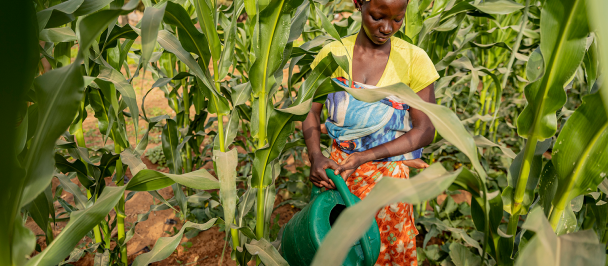Costa Rica is the first country in the world to establish a National Plan to improve the fisheries of large pelagic species, including tuna, sword and mahi mahi.
The Ministry of Agriculture and Livestock (MAG), the Ministry of Environment and Energy (MINAE) and the Costa Rican Institute of Fisheries and Aquaculture (INCOPESCA), with the support of the United Nations Development Programme (UNDP) officially presented the National Action Plan for Large Pelagic Fisheries 2018-2030 on 28 November, 2018, in Puntarenas, Costa Rica. The purpose of this plan is to improve the fisheries of large pelagic species in Costa Rica, including tuna, sword and mahi mahi, and to increase the supply of seafood from sustainable sources, while at the same time ensuring the social welfare of the people linked to the fishing activity.
The National Action Plan for Large Pelagic Fishing is the result of a process of dialogue which lasted for twelve months and in which more than one hundred people participated, such as government officials, academia, civil society, international cooperation, fishers representatives, exporters, restaurants and supermarkets.
"This is an action plan where we all collaborate in the sustainability of the resource, through partnerships, coordinated investments and joint actions, which also provide valuable information for the fisheries authority to make decisions with a scientific basis, for the benefit of a sector that requires to continue contributing to the development of the country. The work plan presented today is a commitment that contributes to this objective and to the fulfillment of the Sustainable Development Goals", said Minister of Agriculture and Livestock, Renato Alvarado Rivera.
The Executive President of INCOPESCA, Moisés Mug Villanueva insisted on improving the performance of the fisheries and ensuring the functioning of sustainability parameters is a priority for INCOPESCA. He stated that, "this plan for the large pelagic fisheries species by long line fleets focuses in one of the sectors in which we must achieve important improvements. This requires an investment in the improvement of the technological, scientific and management capacities of the fisheries. INCOPESCA is after making these investments with its own resources, but we are also looking for the financial resources to achieve those objectives, and achieve the implementation of the actions in this action plan, as well as to finance the actions to fully attend the fisheries of the country. We seek to promote the prosperity of the services that depend on the oceans in Costa Rica and the fishing communities in the long term”.
For the minister of Environment and Energy, Carlos Manuel Rodríguez, this plan is a first step and an important input to improve the management of fisheries in the country. "For MINAE, it is fundamental that fisheries decisions to be taken by scientific criteria that would lead to maintain the health of the ecosystems and the sustainable development of the communities that depend on this economic activity. We need to transform the vision of our seas reconciling conservation with the use of resources to achieve sustainable consumption and production patterns. The joint work between the institutions and the fishing sector guided by this plan direct us towards these goals", he assured.
This plan is the first of its kind to be launched at the global level. "We congratulate Costa Rica in the first country in the world to establish a National Action Plan for sustainable fisheries for large pelagic species using the UNDP Green Commodities Programme methodology. This is a concrete step in the implementation of the 2030 agenda, a participatory process led by the government with a longline sector and an export sector. At the same time a long-term commitment to strengthen the sector benefitting thousands of families that actually do this for a living and have seen their income and their livelihoods affected due to the considerable reduction of the fishing resources in the last years”, assured Alice Shackelford, Coordinator of the United Nations System in Costa Rica and Resident Representative of UNDP.

 Locations
Locations








